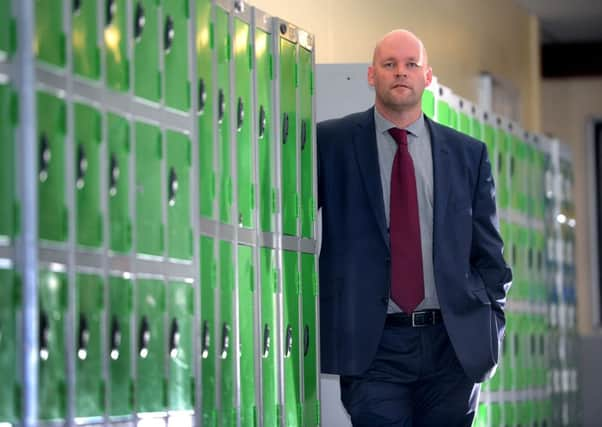Headlines with Jonny Mitchell: Stop telling us how to run our schools


Now he writes exclusively for us.
Every week he will give us his take on life in and outside school from his hometown in Dewsbury.
Sir Michael Wilshaw, the Chief Inspector of Schools, is at it again, disappointingly. I have a lot of respect for Sir Michael. He’s been there and done that. He’s been a headteacher, and a very successful one at that. The knighthood seems to suggest that.
Advertisement
Hide AdAdvertisement
Hide AdBut, last week, he overtly criticised a nation of school leaders and teachers when he told the nation that “too many school leaders… underestimate the prevalence and negative impact of low-level disruptive behaviour.”
Utter rot. We know that kids don’t always behave well. We know that disruptions to lessons can have a negative impact on learning. We know that persistent or frequent disruption is damaging. To suggest we underestimate these facts, and that we are not aware of how widespread it is, is frankly ludicrous. To add that too many headteachers are not prepared to do anything about the issues is insulting in the extreme. There are very few headteachers in the UK who never have to worry about poor pupil behaviour or low-level disruption. In a climate where we expect every child to achieve his or her potential, have access to every opportunity equally, and have a right to a full, broad and balanced curriculum, schools are expected to spend additional resources funding posts for colleagues who can support better behaviour. This is because the impact on a school’s reputation is hampered significantly if they make exclusions which are disproportionate to the national average. Many schools feel under such intense pressure not to exclude pupils that they sometimes keep them in school against their own, better professional judgement.
OK – so there is a problem with low-level disruption. We get it. There long has been, and we work tirelessly in schools to improve the situation. But, for pity’s sake, give us the space and the freedom to do what is best for our own circumstances, and stop lambasting heads who are innovative and creative in their solutions.
Ofsted’s own data collated from inspection reports highlights behaviour and safety across many schools as Good or better (in more than 80 per cent of inspected schools) – often the best aspect of a school’s performance. More and more teachers would agree that behaviour has improved in our schools in recent years rather than deteriorated.
Advertisement
Hide AdAdvertisement
Hide AdI am all for improving standards, and I want kids to get the best results they can to move forward in their lives. If what is proposed can do that efficiently and effectively, then great!
What concerns me more than anything, however, is that the setting of policy (how it should be done) appears to be shifting from the Department for Education to Ofsted, a non-governmental and unelected body. Ofsted should be inspecting compliance, not deciding what to inspect. It is crucial that the DofE steps in to prevent yet more damage to a system which is beginning to show severe signs of cracking under the strain of constant change, and even more urgently to stem the tide of high-quality teachers and leaders leaving the profession forever.
Once they have all left, the kids will have no lessons to disrupt. Perhaps that’s what they’re after?